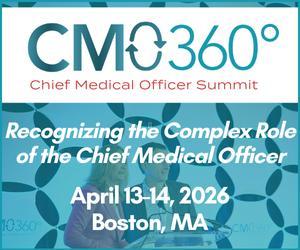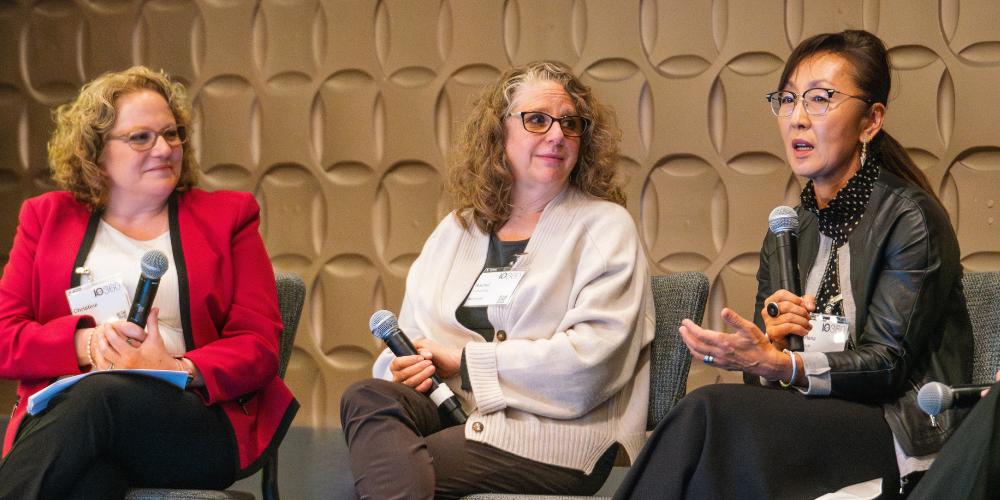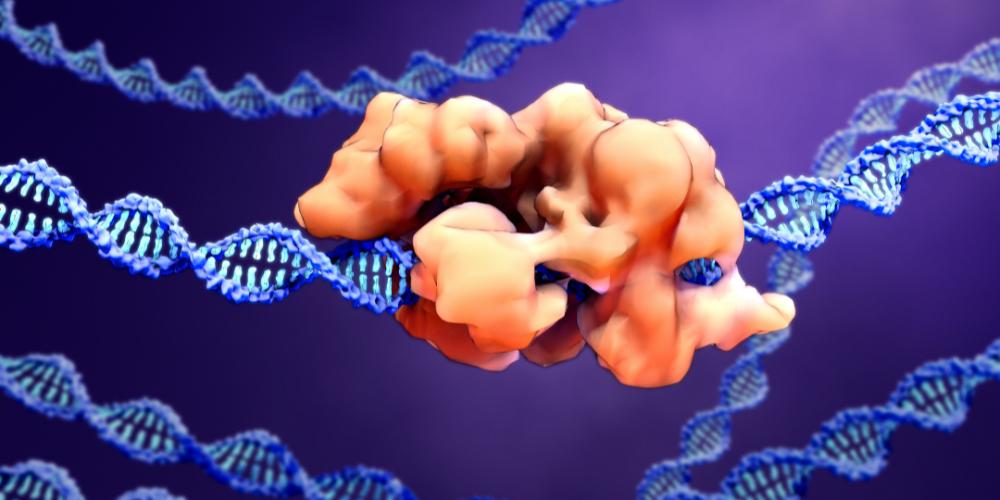Giving New Hope to Myeloma Patients and Working on the Next Generation of Cell Therapies
At BMS, Dr Allison Kaeding is giving new hope to relapsed myeloma patients. She leads the early clinical development of a first-in-class CAR T for multiple myeloma. She also contributes to new ways of developing allogeneic cell therapy and leveraging trial data to better inform the next generation of cell therapies.

How are you helping to advance cell therapy?
I lead Early Clinical Development from pre-IND stages for a first-in-class CAR T therapy for multiple myeloma against a novel cell therapy target, GPRC5D. This is an entirely new treatment option for myeloma patients. Particularly those who have relapsed after standard treatment, this is hugely impactful. It has demonstrated a 91% overall response rate in heavily pre-treated relapsed/refractory multiple myeloma patients.
Additionally, I serve as the Clinical lead and Joint Steering Committee member for our collaboration with Century Therapeutics, where we aim to develop allogeneic cell therapy products derived from induced pluripotent stem cells (iPSCs). This groundbreaking platform allows us to deliver off-the-shelf gene-edited cell therapies.
What’s next for that GPRC5D CAR T therapy?
Our Phase I monotherapy study has shown promising preliminary safety and efficacy results. Beyond initiating pivotal studies, we are exploring innovative combinations including pairing the CAR T with a T cell engager against a second tumor target, BCMA, and with novel protein degraders active in myeloma and known to stimulate T cell immunity.
"This is an entirely new treatment option for myeloma patients. Particularly those who have relapsed after standard treatment, this is hugely impactful."
What will become possible next if your work succeeds?
If we can better understand the risk factors for an early manifestation of cell therapy side effects like cytokine release syndrome, we can make administration of these potent therapies safer for patients. This will ultimately help oncologists and medical providers feel more comfortable administering these therapies in an outpatient or community setting where suitable and enable these disease-changing living drugs to reach more patients.
You also co-lead BMS’ Cell Therapy Correlative Research Team. How is that advancing research?
This cross-functional team is focused on advancing the field’s knowledge of determinants of safety and efficacy of cell therapies for cancer treatment, leading to improved understanding of our approved cell therapies and shaping development of the next generation of therapies. We apply cutting-edge data analytics including statistical modeling and machine learning to address pressing, clinically relevant questions impacting BMS Cell Therapy portfolio development.
We are leveraging BMS’s breadth of cell therapy clinical trial experience, including curated data from 4700+ patients treated on 24 cell therapy trials with 6 distinct CAR T assets including Breyanzi and Abecma, to extract valuable research insights that can span multiple cell therapy disease indications and/or cell therapy products.
What is one prediction you have for immuno-oncology in 2024?
There will be more observations of when and why cell therapies work in solid tumors which will, by contrast, further illuminate the factors driving cellular therapy resistance in specific solid tumor indications. This will give us new insights into how to adapt our current cell therapy approaches to better treat more types of cancer.
"I appreciate the creativity and nuanced understanding of cell biology required to envision and develop novel therapies for these challenging diseases."
What are the specific modalities or pathways that you’re keeping an eye on?
Advances in targeted protein degradation have been very exciting to follow in recent years and opens a new realm of potential biological ‘threads to pull’ in cancer therapeutics.
What made you pursue immuno-oncology specifically?
After my third year of medical school, I undertook the responsibility of conducting the correlative research for an NCI/Children’s Oncology Group-sponsored Phase III clinical trial. Having always loved science and math, I actively pursued bench research experience in microbiology during my four years of undergraduate and a clinical research project in allergy/immunology in early medical school, but it was there that my interests converged into a compelling career path in cancer research.
I appreciate the creativity and nuanced understanding of cell biology required to envision and develop novel therapies for these challenging diseases and, with beloved family members and many of my own pediatric oncology patients lost to cancer, I know every day at work is meaningful.
"With beloved family members and many of my own pediatric oncology patients lost to cancer, I know every day at work is meaningful."
What is your career advice, especially for young women who are entering science careers?
Science is fundamentally a human endeavor, encompassing the creative generation of hypotheses, convincing validation of findings, collaboration with colleagues, synthesis of information, and effective communication of insights.
It is essential to recognize that, as you embark on a career in science, your human skills play a pivotal role. So embrace the integration of your humanity into your work, as the most rewarding experiences in science arise when all elements yourself align with the conviction that you are contributing meaningfully, whatever that means to you.
Whether it involves establishing foundational basic science, generating pivotal clinical trial data for a new therapy approval, or working with a research team that is inspiring, pursue the path(s) that resonates with your full humanity. This alignment not only benefits you personally but also contributes positively to the scientific community and the broader world.
What did a mentor do that really made a difference in your career?
Mike Burgess, MD, PhD, SVP, Head of Translational Research, was a tremendous mentor because he excels at leading while fostering trust within teams, an important catalyst of successful scientific work. He did this while also imparting drug development skills; I’m grateful for that guidance and support.
Book Recommendations:
Don’t Trust Your Gut by Seth Stephens-Davidowitz, who is an economist and former Google data scientist. This is a nonfiction ‘pop-science’ type of book that presents analyses of big data, e.g. of tax records or internet search data, that would arguably help the average person make various life decisions. It’s like a data-driven self-help book, but the writing is light, and it’s fun to see the conclusions made from these analyses and to see if you agree.










